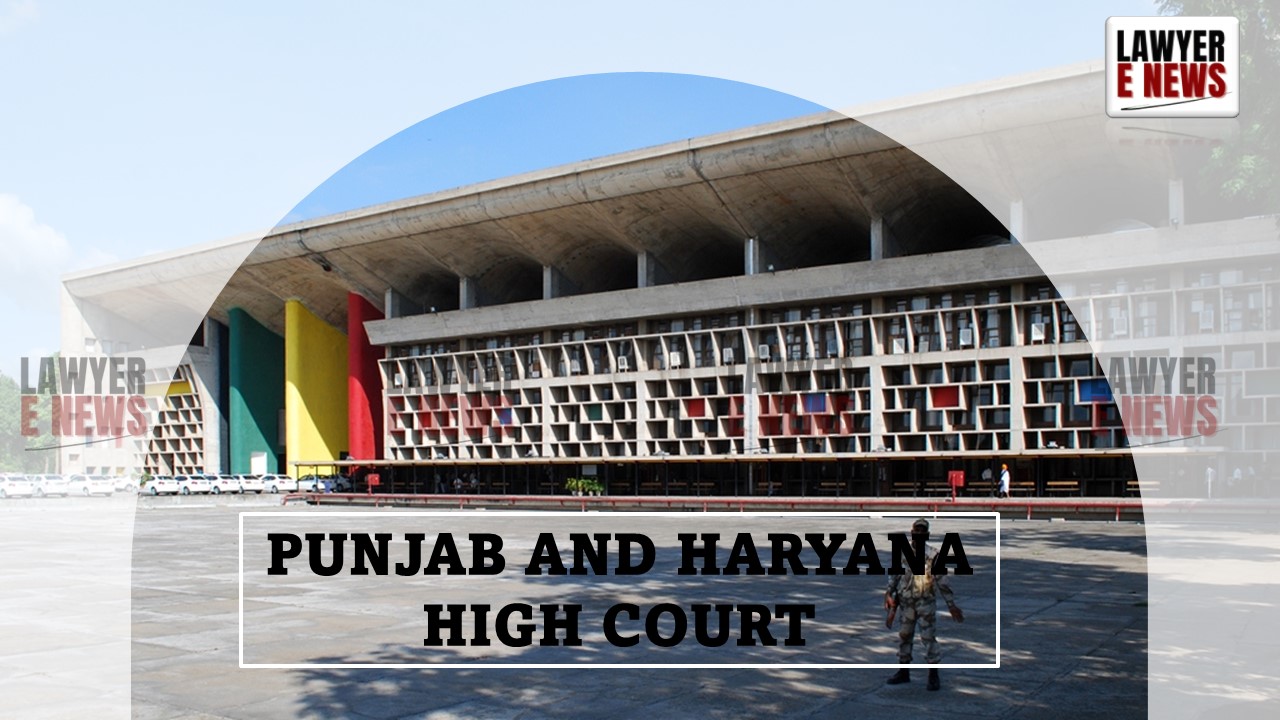-
by Admin
18 February 2026 3:03 AM



In a recent judgement, Punjab and Haryana High Court set aside the order of summoning passed by the Additional Sessions Judge, Bhiwani under Section 319 CrPC. The High Court held that the summoning order was defective as it ignored the critical testimony of the complainant, which was essential to ascertain the alleged conspiracy behind the murder. The Court categorically observed, “Since there is discussion of the statement of injured witness – Ajit Singh (PW-3) only, and neither any discussion nor observation has been made qua the statement of complainant – Chandi Ram (PW-4), to the viewpoint of this Court, impugned order is worth to be set aside, warranting re-decision.”
The case involved a politically motivated murder arising out of a village sarpanch election dispute in Village Badesara, District Bhiwani, Haryana. On 16th November 2022, Mahender, the brother of the complainant Chandi Ram, was shot dead while his associate Ajit Singh sustained multiple gunshot injuries. The FIR alleged that several persons had threatened Mahender and Ajit Singh due to their support for a rival candidate.
Initially, eight accused were charge-sheeted. Later, based on the statements of injured witness Ajit Singh (PW-3) and complainant Chandi Ram (PW-4), the prosecution moved an application under Section 319 CrPC to summon six more persons — Jora Singh, Vikram, Balraj, Mohit, Uppan, and Raj Kumar — as additional accused on the charge of murder, conspiracy, and other offences under IPC and Arms Act.
The Trial Court, through order dated 11th September 2024, allowed the application and summoned the petitioners as additional accused without referring to or analyzing the complete evidentiary material, especially the conspiracy allegations narrated by the complainant.
Justice Sanjay Vashisth found that the Trial Court exercised the power under Section 319 CrPC “without any discussion of the complainant’s statement,” which was the sole source of the conspiracy allegation. The Court noted, “Learned Trial Court has not given any reason as to why only six of the persons have been summoned as additional accused, without mentioning anything about others who have been left out despite being named by the complainant – Chandi Ram (PW-4) in his examination-in-chief, with similar allegations.”
Emphasizing the principle laid down in Hardeep Singh vs. State of Punjab, (2014) 3 SCC 92, the Court reminded that summoning under Section 319 CrPC is a serious matter and must be exercised judiciously. The Court held, “If that principle is applied to the facts of the present case, learned Trial Court has not given any reason as to why only six of the persons have been summoned...”
The Court took note that Ajit Singh (PW-3) did not even name some of the summoned persons in his statement regarding the actual occurrence. Yet, they were summoned, while ignoring the vital details narrated by the complainant (PW-4), who specifically attributed the conspiracy to certain accused persons.
Critical Comment on Trial Court's Approach
The High Court critically observed, “The power is to be exercised judiciously, on the basis of the evidence before it. The Court must satisfy itself while exercising the power that there is strong likelihood of committing of offence by the proposed accused.”
Further, the Court remarked that the order lacked “an iota of discussion” on how the complainant’s statement corroborated or contradicted the claim for summoning additional accused.
Setting aside the summoning order, the Court directed, “Learned Trial Court is expected to exercise its power enshrined under Section 319 Cr.P.C. for summoning of additional accused, by discussing complete material before it, i.e., statements of both the material witnesses, namely, Injured – Ajit Singh (PW-3) and complainant – Chandi Ram (PW-4) and any other substantive material available on record.”
The High Court also clarified that the benefit of this judgment would extend to Raj Kumar, another additional accused who did not prefer a revision, holding, “The finding recorded by this Court qua other five additional summoned accused, would extend the benefit to the said additional summoned accused Raj Kumar also.”
The Trial Court was directed to pass a fresh order on the Section 319 CrPC application within 45 days after considering the complete evidence.
This judgment reasserts that judicial discretion under Section 319 CrPC must be exercised strictly in accordance with law and evidence. The Court emphatically reminded that: “Summoning of additional accused cannot be mechanical or selective; it must rest on a full appraisal of relevant and admissible evidence.”
Date of Decision: 27 March 2025
